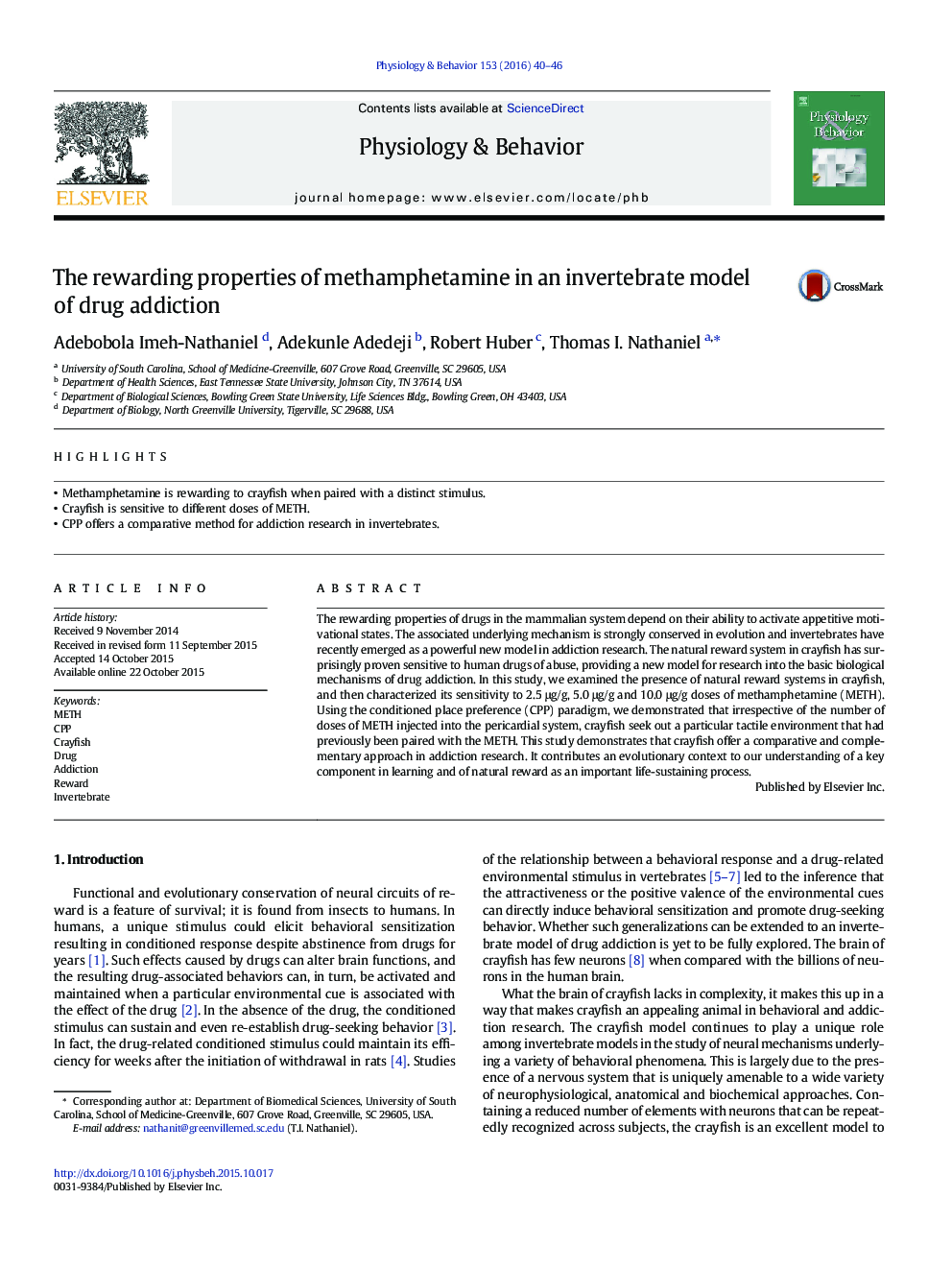| Article ID | Journal | Published Year | Pages | File Type |
|---|---|---|---|---|
| 2843945 | Physiology & Behavior | 2016 | 7 Pages |
•Methamphetamine is rewarding to crayfish when paired with a distinct stimulus.•Crayfish is sensitive to different doses of METH.•CPP offers a comparative method for addiction research in invertebrates.
The rewarding properties of drugs in the mammalian system depend on their ability to activate appetitive motivational states. The associated underlying mechanism is strongly conserved in evolution and invertebrates have recently emerged as a powerful new model in addiction research. The natural reward system in crayfish has surprisingly proven sensitive to human drugs of abuse, providing a new model for research into the basic biological mechanisms of drug addiction. In this study, we examined the presence of natural reward systems in crayfish, and then characterized its sensitivity to 2.5 μg/g, 5.0 μg/g and 10.0 μg/g doses of methamphetamine (METH). Using the conditioned place preference (CPP) paradigm, we demonstrated that irrespective of the number of doses of METH injected into the pericardial system, crayfish seek out a particular tactile environment that had previously been paired with the METH. This study demonstrates that crayfish offer a comparative and complementary approach in addiction research. It contributes an evolutionary context to our understanding of a key component in learning and of natural reward as an important life-sustaining process.
